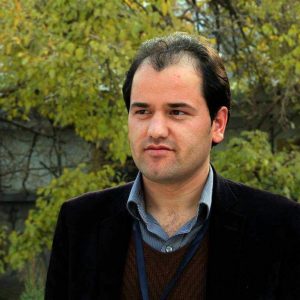Peace Agreement Should Protect Fundamental Rights

Dariush believes that lasting peace is achievable through consideration of social justice provision and fundamental rights protection of citizens.
In an interview by Civil Society and Human Rights Network (CSHRN), Dariush stated that peace is not only the absence of war. In his perspective, setting a ceasefire does not indicate peace when people are suffering from a violation of their fundamental rights. Because there is not any guarantee for observation of social justice and fundamental rights of people. Therefore, a short-term ceasefire is not trustable due to the existence of the probability of its collapse at any time.
CSHRN: What is your assessment of current negotiations? Will it reach a tangible outcome?
Dariush: I think the peace negotiations are going to become ambiguous more than before overtime for the reason of not observing the violence reduction agreed between the US and Taliban. It was one of the preconditions for the start of intra-Afghan peace negotiations. There is not any sign for consideration of the article related to such an issue mentioned in the agreement. We are witnessing violence on a large scale in cities upon agreement between the US and Taliban. Also, the Trump administration’s policy for hasty withdrawal strengthens ambiguity of the achievements in peace negotiations. Additionally, the external interferences in peace negotiations are another obstacle on the way of reaching a tangible result in the peace process which makes the negotiations more controversial. Hence, we cannot be optimistic about the current negotiations to have an inclusive outcome in a short time.
CSHRN: With taking into consideration the Taliban’s perspective regarding women, how will their presence affect the women’s political and social rights in the ensuing days of political settlement?
Dariush: Taliban have a long history of misogyny and malevolence manifestation. They showed animosity to ethnic, religious, and linguistic minorities during their rule. Even the cultural heritages were not safe from the Taliban’s hostility. It is obvious that the presence of women in society equally to the men is intolerable for Taliban when their ideology disrespects women’s rights. However, the protection of women’s rights depends on strength of proponents of human rights, civil society, and women’s rights activists. They can support women’s rights by putting Taliban under pressure.
CSHRN: To what extent the women’s presence in peace talks can affect the Taliban’s view of women?
Dariush: They can challenge Taliban at least in public opinion through media. The women representing Afghanistan in peace negotiations can share their concerns in person with Taliban. And Afghan women can strengthen their social and political status by having cohesion on a common perspective and propel the negotiations in favor of themselves.
CSHRN: Regarding women’s rights, what important issues should be further emphasized?
Dariush: Democratic values and a relatively inclusive political system are among the most significant achievements of Afghanistan within two last decades. Thus, the upcoming government upon the success of peace negotiations should preserve democracy promotion process, people’s political participation, and civil society. Additionally, the protection of the fundamental rights of citizens is a must, otherwise, peace would not be lasting.
CSHRN: To what extent the Taliban’s presence in the government structure would affect civil society activities?
Dariush: It depends on the type of Taliban’s share in future government’s structure. With an assumption of partial share for Taliban in the future government, women will have a chance of enjoying their social and political rights. The inclusion of the Islamic Party of Hekmatyar in the government structure makes this assumption solid that it could not prohibit women from work and political participation. However, the assumption of the Taliban’s dominance in the future enhances concerns. In that case, including women, minorities, students, scientists, authors, and all intellectuals with democratic vision will suffer.
CSHRN: As an Afghan citizen, what are your main concerns regarding the outcome of peace talks?
Dariush: I am concerned regarding the living conditions of Afghan citizens in the ensuing days of peace negotiations success. I believe that achievement in peace negotiations appears distant for now. It is fifty years that Afghanistan is plunged into catastrophic conflicts. People witnessed strife on the basis of ethnic and religious issues for several hundred years in this country. Guns may be dropped for a while, but the main concern is ideological conflicts and contrast between values coming from two different roots. The social fragmentation is apparent in society causing serious damages to the process of social inclusion. Without addressing these issues, prospects of peace negotiations would be distant. Therefore, to have lasting peace, it is needed to put efforts into social and political cohesion, not to witness antagonism among Afghan citizens on the basis of their ethnicity, religion, and race.
CSHRN: In your point of view, what will guarantee that Taliban will abide by their commitments in the peace agreement?
Dariush: In response to your question, I should declare that nothing would guarantee the success of peace talks. As I mentioned before, if Taliban pursue a policy of dominance on the whole of Afghanistan, deal with them would be difficult. In that case, the country will be pushed backward instead of experiencing property.